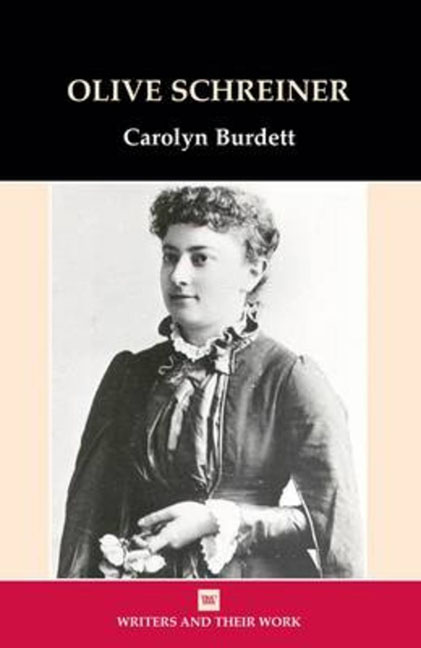Book contents
- Frontmatter
- Dedication
- Contents
- Acknowledgements
- Biographical Outline
- Abbreviations
- Introduction
- 1 Evangelicalism, Freethought and Love: Undine and The Story of an African Farm
- 2 Sex Work: Woman and Labour, Stories and Allegories, From Man to Man
- 3 A Returned South African
- Notes
- Select Bibliography
- Index
1 - Evangelicalism, Freethought and Love: Undine and The Story of an African Farm
- Frontmatter
- Dedication
- Contents
- Acknowledgements
- Biographical Outline
- Abbreviations
- Introduction
- 1 Evangelicalism, Freethought and Love: Undine and The Story of an African Farm
- 2 Sex Work: Woman and Labour, Stories and Allegories, From Man to Man
- 3 A Returned South African
- Notes
- Select Bibliography
- Index
Summary
In December 1883, the journalist Henry Norman surveyed the state of contemporary fiction for the Fortnightly Review. ‘[O]ne place stood out’ amidst the ‘yachts, clubs, hansoms, and Piccadilly’ which formed the backdrop of much formulaic novelistic fare. A ‘weary flat plain of red sand’ was the setting for a surprising recent novel, The Story of an African Farm, by an unknown author, Ralph Iron. Despite the ‘very masculine name’ on the title page, Norman was presciently convinced that he had been reading the work of a young woman. He warned his readers that the modest title would do little to prepare them for a novel which, with ‘refreshing temerity’, deals with the big issues of the day: faith, belief and knowledge, the position of women and the state of marriage, ‘they all arise … over the horizon of this African farm’.
Writing 70 years later, Schreiner's goddaughter, Olive Renier, recalls accounts by her mother and her friends of the impact in the 1880s of The Story of an African Farm. As it quickly became known that ‘Ralph Iron’ was a young South African woman it seemed that ‘Here was a genuine New Woman, who in the middle of her South African desert had somehow asked herself the same questions, about religion, about sex, that were being asked in and around the British Museum’. Schreiner's most famous book appeared in two volumes in January 1883. It was the only one of her novels published in her lifetime and her only work constantly in print since. It tells of three children growing up on an ostrich farm in the Karoo region of the Cape Colony in the 1860s. Em is the English stepdaughter of the farm's owner, a Boer woman, Tant’ Sannie; the beautiful Lyndall is Em's orphaned cousin; and Waldo is the son of the farm's benevolent and pious German overseer, Old Otto. Part I of the book focuses on Waldo's agonized loss of religious faith. His spiritual crisis is ironically accompanied by the arrival at the farm of Bonaparte Blenkins, adventurer and trickster, who inveigles his way into influence and power on the farm before finally being exposed and driven away.
- Type
- Chapter
- Information
- Olive Schreiner , pp. 12 - 33Publisher: Liverpool University PressPrint publication year: 2005

